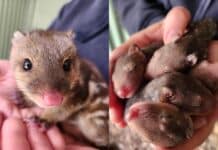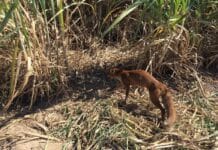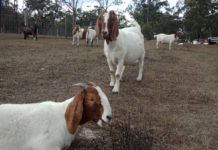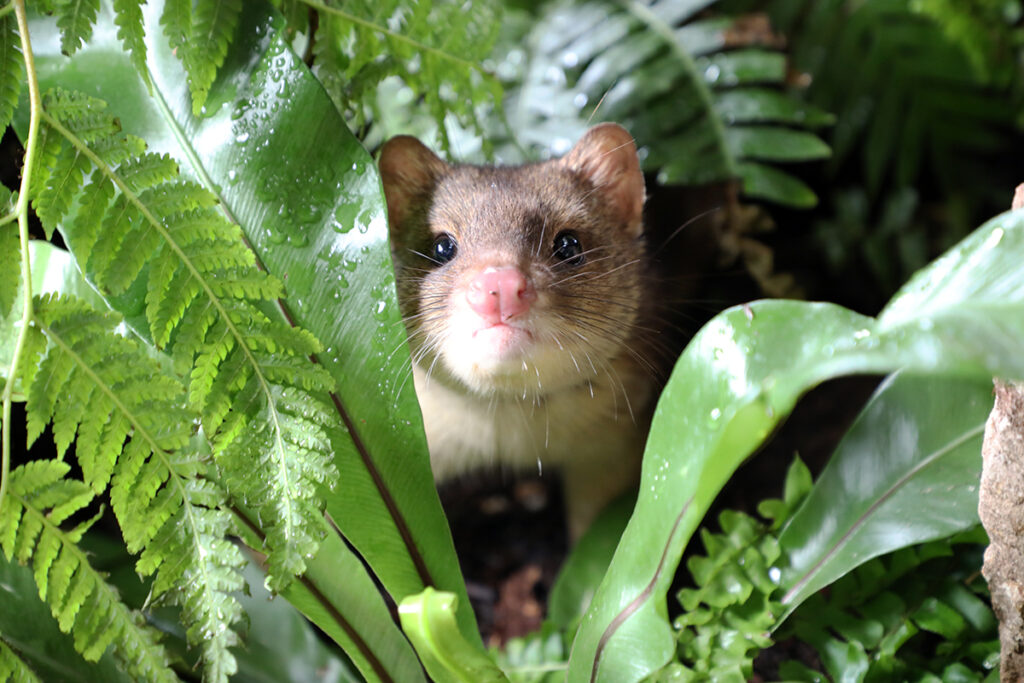
He’s cute, he’s furry and Alexandra Park Zoo’s newest addition has officially been named Crunchy the quoll.
The successful name submission, put forward by one of the zoo keepers, was selected due to Crunchy’s noisy eating habits.
Zoo Group Supervisor David Flack said it was a tough decision but in the end staff felt the name Crunchy best suited the quoll’s unique personality.
“It was an appropriate name given the noise he makes when he crunches his food,” David said.
“In the time he has been with us we have found that he is quite motivated by food.
“In fact he’s even had a chomp on some of our keepers if they take too long in delivering his lunch!”
At just over 12 months of age Crunchy weighs about 1.5kg. He’ll reach maturity in about six months and will be full size by the time he is two years old.
David said Crunchy, who is a spotted-tail quoll, was already proving popular with zoo visitors.
“For what is normally described as a nocturnal animal he is very active during the day,” he said.
“He’s been getting quite a bit of attention.
“We have a public feeding every day at 10.30am so that’s the time we can guarantee you’ll be able to see him.”
Crunchy the quoll helps to educate public
Council’s environment spokesman Cr Wayne Honor said the quoll, which originated from Tasmania, was a great addition for the zoo.
“Alexandra Park Zoo provides a wonderful opportunity for our community to learn more about native and endangered animals,” Cr Honor said.
“The quoll is an important species to our local area and to Queensland and Crunchy the quoll can help us to educate people about conservation measures.
“Our qualified and knowledgeable staff are often on hand to answer questions and share information about these wonderful creatures.
“It’s a valuable asset for the Bundaberg Region that we have a facility of this quality which residents and visitors alike can access free of charge, seven days a week.”
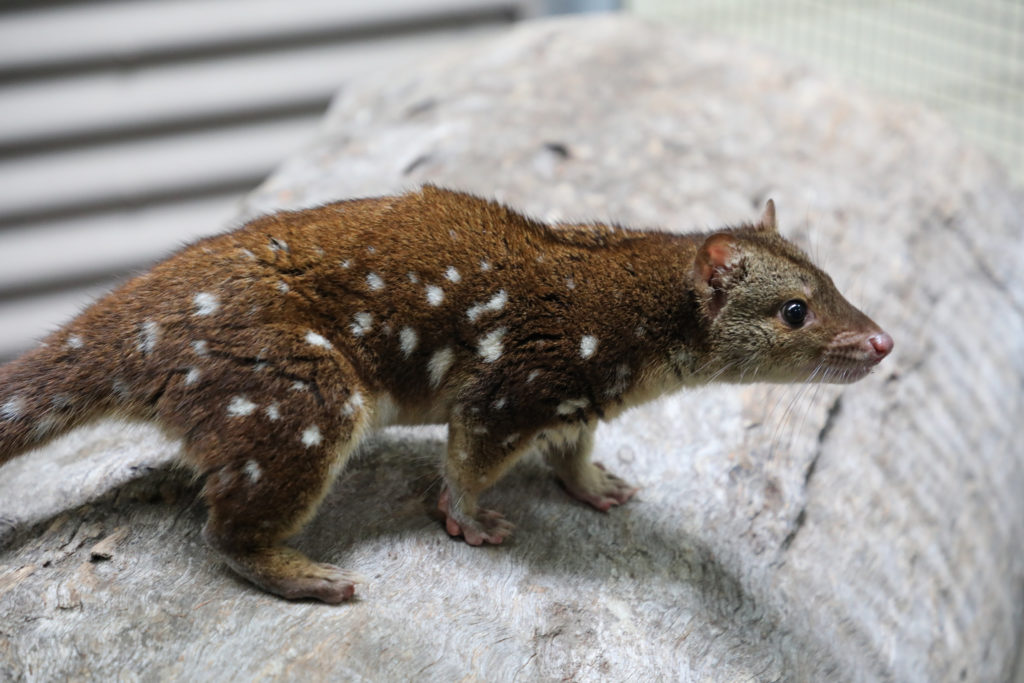
David said he loved sharing interesting quoll facts with zoo visitors.
“One thing I think is really cool is that there was a recent study done on 40 of the world’s largest mammal carnivores which ranked quolls at number two in terms of bite force to body size ratio,” Cr Honor said.
“What that means is that for their size they have one of the meanest sets of teeth out there – and that’s compared to animals including cats, dogs and bears.
“We’re just lucky they don’t grow any bigger!”
Spotted-tail quolls can be found throughout eastern Australia and this particular species can be found in the Bundaberg Region.
However sightings are rare as the marsupials have become endangered as a result of habitat fragmentation.
David said not to be deceived by the feisty creature’s small stature.
“They’re the largest of the quoll species,” he said.
“In the wild they are known to pull down prey that’s significantly larger than they are.”
Other news: Alby the bum breather welcomed to zoo

